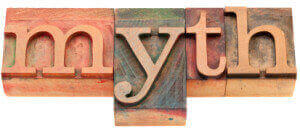 Our thanks to the dynamic team at Wise Ink Creative Publishing for this guest post. Principals Dara Beevas and Amy Quale will also be presenting a special panel, Beyond the Book: Platform Building, at this year’s PubSense Summit…
Our thanks to the dynamic team at Wise Ink Creative Publishing for this guest post. Principals Dara Beevas and Amy Quale will also be presenting a special panel, Beyond the Book: Platform Building, at this year’s PubSense Summit…
In the wake of self-publishing’s meteoric rise in popularity over the last few years, there have been plenty of misunderstandings about the industry. Let’s tackle five of the most common myths about self-publishing:
Myth #1: Self-publishing is for people who have no talent
What do Virginia Woolf, Ernest Hemingway, and Jane Austen all have in common?
Okay, so there are a lot of things: bestselling fiction works, critical acclaim, really cool names. But one you may not have known is that they all decided to self-publish at one point or another. Each had their own reason: Hemingway was an unknown author, Woolf wanted more creative control, Austen’s publisher was taking too long to go to print. For more on famous authors who self-published, check out this post.
Myth #2: Self published = low quality production
It is definitely possible for a writer to proofread their own book, or to make their own cover that showcases their rudimentary Photoshop skills. Some authors choose to go this route, and although it can save some money, most of these books are of a noticeably lower quality than their traditionally published counterparts.
However, many indie presses release books that are indistinguishable from anything out of Penguin Random House, minus the cute orange logo. Just because a book is self-published doesn’t mean that it or the team that assembled it are not professionals.
Myth #3: Self-publishing presses have no standards
Although anyone with an internet connection and a few bucks can publish an ebook, often indie presses only accept a fraction of the pitches they receive.
That’s one of the key differences between a vanity press and an indie press. Although the former accepts almost any project, a chunk of the self-publishing industry is judicious about the works it puts out. Some indie presses specialize in certain genres, while some are just passionate about putting out quality pieces of literature.
Myth #4: Self-published authors don’t make any money
Let’s be honest: writing a book is never going to be a safe bet for a lucrative career, whether you are traditionally or independently published. While it’s true that, on average, traditionally published authors make more than self-published authors, the numbers are closer than you might think.
How successful you are in either traditional or indie also depends on your subject matter and your marketing strengths.
Speakers, for instance, are pretty much guaranteed to make more by going indie. Some fiction authors, like Donna Fasano, have even switched from traditional to indie publishing and made more money, which leads us into our next myth…
Myth #5: Once a self-published author, always a self-published author
Deciding to self-publish your book doesn’t mean that you’ll always be only an indie author. Traditional publishers will often give special attention to self-published authors when they’re looking for new talent. Just don’t count on selling your self-published book to a traditional publisher; this almost never happens, and when it does, it’s only when you’ve already sold tens of thousands of copies on your own.
By the same token, some authors have switched from traditional publishing to indie, whether it is for more creative control or a higher cut of the profits.
Are there any other myths about self-publishing that you’d like to bust? Sound off with your comments below!

You have to decide if you’re writing for money or for ego.
I’ve been a self-published author for more than 20 years and have sold thousands of my children’s and young adult novels. I’m now working with a Texas indie firm, Black Rose and hope to do the same with my mystery. I have also published with traditional publishers. The trick is to keep on writing and to work with professionals who are tough editors and provide the essential and very tough tricks of the trade as well the the basic learning. Writing and editing are key. I have never made a fortune but there is more than one way to survive and this means of publishing is, as your myth-bashing facts spell out is a very valuable and potentially lucrative learning mode of survival. It facilitates your creativity.
Sarah Yates, author of Playing a Deadly Patent Game, 2014 and Lucky Lou Gets Game 2012, plus many other books.